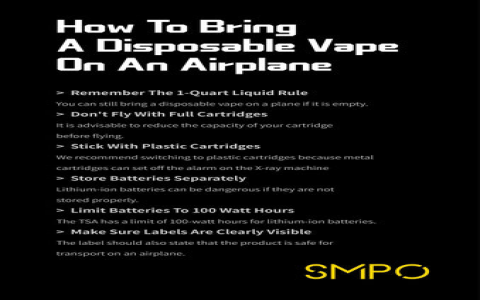Yes, you can generally take an electronic cigarette (vape, e-cig) on a plane, but there are crucial restrictions you must adhere to.
General Rules for Electronic Cigarettes on Airplanes
Understanding and following these regulations is essential for a smooth travel experience.

Key Regulations:
- Carry-on Baggage Only: Electronic cigarettes, vaping devices, and their batteries must be transported in your carry-on baggage. They are strictly prohibited in checked baggage due to the fire risk associated with lithium batteries.
- No In-Flight Use: Using or vaping an electronic cigarette is forbidden at all times while on board the aircraft. This includes during boarding, while the aircraft is on the ground, and during the flight.
- No In-Flight Charging: Charging your electronic cigarette device or its batteries is also not permitted during the flight.
- Battery Safety: If your device uses removable batteries, they must be protected from short circuits. This can be achieved by keeping them in their original retail packaging, covering the terminals with tape, or placing each battery in a separate plastic bag or protective pouch. All spare batteries must also be in your carry-on baggage.
E-Liquids
E-liquids are subject to the standard aviation security rules for carrying liquids and gels in your carry-on baggage:
- Containers holding e-liquid must be 100 milliliters (3.4 ounces) or less per item.
- All such liquid containers must fit comfortably within a single, transparent, resealable plastic bag. The bag should have a capacity of approximately one liter (one quart).
- This bag must be presented separately from your other carry-on items at the security screening checkpoint.
Important Considerations
- Airline Policies: While these are general guidelines, individual airlines may have additional or more specific restrictions. It is always advisable to check directly with your airline before you travel.
- Destination Country Regulations: The laws regarding the possession, use, and importation of electronic cigarettes vary significantly from one country to another. Some countries have banned their sale, importation, or use entirely. Research the regulations of your destination country well in advance to avoid potential legal issues upon arrival.










